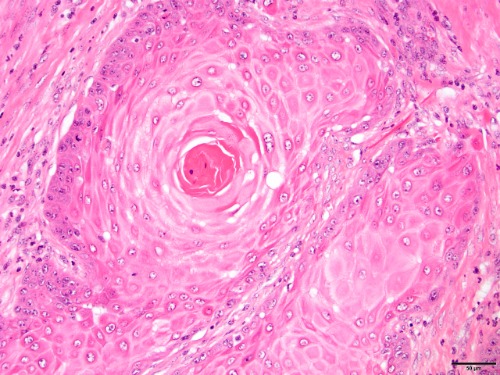New HBLB grant awarded to Prof Simon Priestnall and Dr Alejandro Suarez-Bonnet
Squamous cell carcinoma (SCC) is the second commonest equine tumour, predominantly affecting genitalia and the eyes/periorbital tissues. These tumours typically have a guarded to poor prognosis, and a significant proportion are likely induced by equine papillomavirus in a similar way to human papillomavirus-induced SCC. There is strong evidence from humans that virally-induced SCCs have a better prognosis and outcome than UV-induced tumours.
Prof Simon Priestnall and Dr Alejandro Suarez-Bonnet have been awarded a grant from the HBLB to evaluate a large case series of equine SCCs with full clinical follow-up. They will develop a histopathological subtyping system, based on that used in humans, and an assay for the cell cycle protein p16, as a proxy marker for papillomavirus-induced tumours, to more accurately predict clinical behaviour of equine SCCs. Both the histopathological subtyping system and the immunohistochemical assay have the potential be easily transferred to diagnostic pathology laboratories for maximum benefit to the British equine population.
This project builds on the recent publication by Suarez-Bonnet et al. in Urologic Oncology proposing the horse as a naturally occurring large-animal model of the human disease

You may also be interested in:
-
Cavapoo and Cockapoo designer dog breeds at high risk of tick infestation, study finds
The RVC’s VetCompass Programme reveals the dog breeds at most and least risk of tick infestation to …

